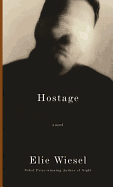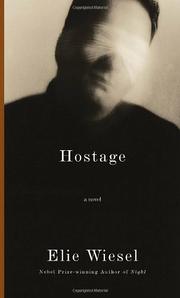 Elie Wiesel's Hostage is a chilling novel about a political kidnapping that allows its author to meditate on the power of memory and the peril posed by revolutionary fanaticism.
Elie Wiesel's Hostage is a chilling novel about a political kidnapping that allows its author to meditate on the power of memory and the peril posed by revolutionary fanaticism.
Set in mid-1970s New York, Hostage recounts the nightmare experience of Shaltiel Feigenberg, a "storyteller" who is seized by two terrorists--one Arab, the other Italian--while walking to his Brooklyn home. The young writer's claim to literary celebrity is modest, and there's no obvious reason he's been singled out. But his ordeal becomes more compelling when we learn he survived the Holocaust as a child in Galicia, hidden by a German count while his father was deported to Auschwitz and his mother died from an untreated medical condition.
Over the course of several days, Feigenberg is beaten and confronted repeatedly by his kidnappers. Ahmed is an abusive, fiery revolutionary, while Luigi, though equally fervent in his radical beliefs, prefers to engage in civilized conversation with his prisoner. "What unites us all," says Luigi, "is a faith in violence as the only way of influencing events."
Unsurprisingly, Wiesel's novel overflows with stories, the chief vehicle Feigenberg relies upon to maintain his sanity. Whether it's the parables of some of the Hasidic masters whose work Wiesel has helped popularize or his protagonist's accounts of the chess matches he played against the German count as a terrified boy, these tales prove, as the mystic One-Eyed Paritus, a recurring character in Wiesel's novels, puts it, "God created man and gave the storytellers the task of saying why."
In contrast to these vivid excavations of memory, the least compelling sections of Hostage are the periodic debates provoked by the terrorists' hatred for the state of Israel and Feigenberg's passionate rebuttal when it becomes clear he's being used as a bargaining chip to secure the release of three Palestinian prisoners. These arguments will sound overly familiar to anyone possessing even a modest familiarity with the Middle East's contemporary history. Wiesel is much more interesting when he reflects on the roots of political radicalism, subtly equating the fanaticism of Luigi and Ahmed with the misguided idealism that impelled Shaltiel's brother to abandon the family and emigrate to Stalinist Russia before repudiating it for life as an ultra-Orthodox Jew in Jerusalem.
Hostage is an effective summing up of many of the themes Wiesel has pondered in a long and distinguished literary career. "In the face of memory," Shaltiel Feigenberg observes, "joys and sorrows merge." That statement could serve as a fitting epigraph for this spare, provocative work. --Harvey Freedenberg
Shelf Talker: Elie Wiesel uses a political kidnapping to explore the themes of memory and the political fanaticism that inspires terrorism.
 "Bookstores are incubators. Books, music, food, conversation, debate all take place at independent bookstores. As a result bookstores make us more informed, engaged and enlightened. Bookstores provide the venues that will grow our brains and our awareness of the culture and ideas and art of others. Bookstores also incubate readers of books. The world needs more readers of books. So let's support those warm, well-lighted stores that allow our little chick selves to grow."
"Bookstores are incubators. Books, music, food, conversation, debate all take place at independent bookstores. As a result bookstores make us more informed, engaged and enlightened. Bookstores provide the venues that will grow our brains and our awareness of the culture and ideas and art of others. Bookstores also incubate readers of books. The world needs more readers of books. So let's support those warm, well-lighted stores that allow our little chick selves to grow."





IPC.0204.S3.INDIEPRESSMONTHCONTEST.gif)





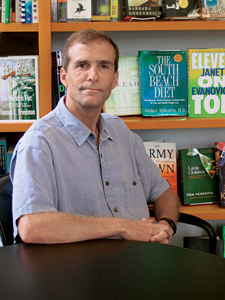 John Sargent, CEO of Macmillan, will be the keynote speaker at the New England Independent Booksellers Association's Fall Conference in Providence R.I. His talk takes place on Wednesday, October 3, at 10:30 a.m., beginning the three-day conference.
John Sargent, CEO of Macmillan, will be the keynote speaker at the New England Independent Booksellers Association's Fall Conference in Providence R.I. His talk takes place on Wednesday, October 3, at 10:30 a.m., beginning the three-day conference.
 The socially networked e-commerce site
The socially networked e-commerce site 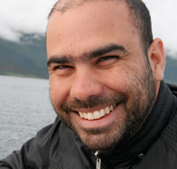 The site offers vendors approximately 95% of the list price for each sale, taking the rest as a transaction fee. It will also enable consumers to create their own kiosks, which they can "stock" with items they like that have been brought into the system by participating vendors; in such cases, the referring kiosk will receive a 25% commission, with 70% going to the original provider. Consumers will be able to search the site by kiosk, and find and follow people whose offerings dovetail with their own tastes. (That's where the social networking aspects come in.) Isham sees this as a powerful opportunity not just for creators and publishers, but for bloggers who aspire to a curatorial role and even for independent bookstores. ReKiosk is commited to selling DRM-free products, which may limit participation by some publishers.
The site offers vendors approximately 95% of the list price for each sale, taking the rest as a transaction fee. It will also enable consumers to create their own kiosks, which they can "stock" with items they like that have been brought into the system by participating vendors; in such cases, the referring kiosk will receive a 25% commission, with 70% going to the original provider. Consumers will be able to search the site by kiosk, and find and follow people whose offerings dovetail with their own tastes. (That's where the social networking aspects come in.) Isham sees this as a powerful opportunity not just for creators and publishers, but for bloggers who aspire to a curatorial role and even for independent bookstores. ReKiosk is commited to selling DRM-free products, which may limit participation by some publishers.IPC.0211.T4.INDIEPRESSMONTH.gif)
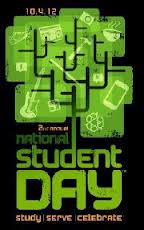 On October 4, the
On October 4, the 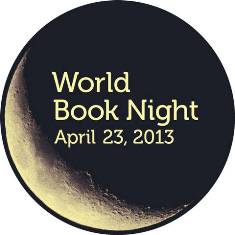
 The Bold Italic surveys
The Bold Italic surveys 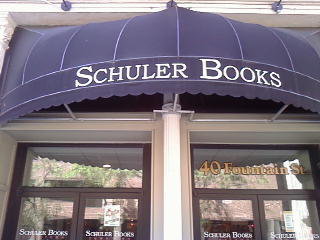 Congratulations to
Congratulations to 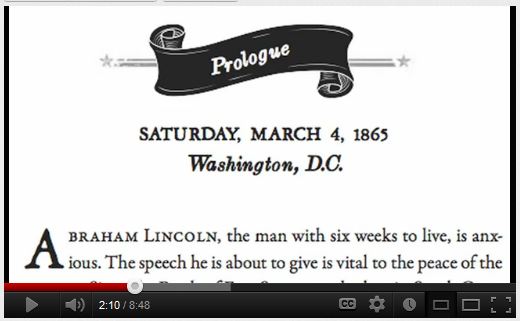 Lincoln's Last Days: The Shocking Assassination that Changed America Forever
Lincoln's Last Days: The Shocking Assassination that Changed America Forever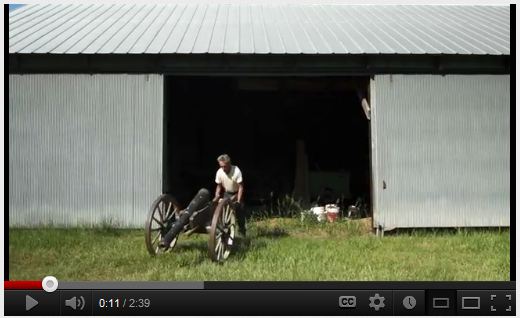 Visiting Tom: A Man, A Highway, and the Road to Roughneck Grace
Visiting Tom: A Man, A Highway, and the Road to Roughneck Grace Elie Wiesel's Hostage is a chilling novel about a political kidnapping that allows its author to meditate on the power of memory and the peril posed by revolutionary fanaticism.
Elie Wiesel's Hostage is a chilling novel about a political kidnapping that allows its author to meditate on the power of memory and the peril posed by revolutionary fanaticism.